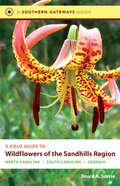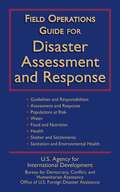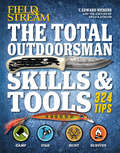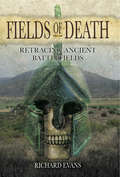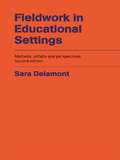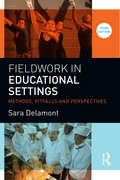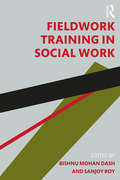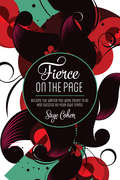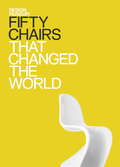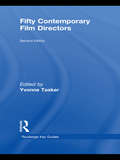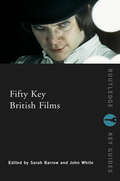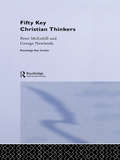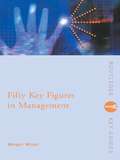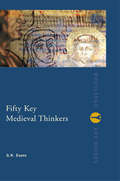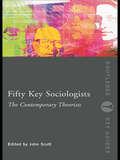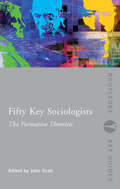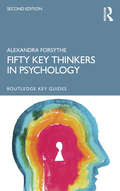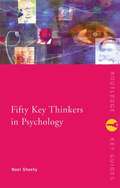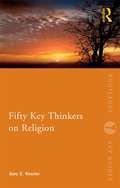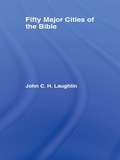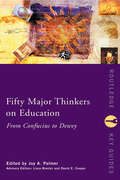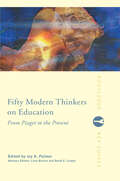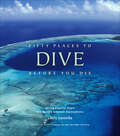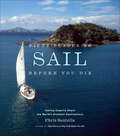- Table View
- List View
A Field Guide to Wildflowers of the Sandhills Region
by Bruce A. SorrieFeaturing over 600 wildflowers, flowering shrubs, and vines, this user-friendly field guide is the first to focus on the rare, fragile lands and species of the Sandhills region of the Carolinas and Georgia. Characterized by longleaf pine forests, rolling hills, abundant blackwater streams, several major rivers, and porous sandy soils, the Sandhills region stretches from Fayetteville, North Carolina, southwest to Columbus, Georgia, and represents the farthest advance of the Atlantic Ocean some 2 million years ago. Wildflowers of the Sandhills Regionis arranged by habitat, with color tabs to facilitate easy browsing of the nine different natural communities whose plants are described here. Bruce A. Sorrie, a botanist with over 30 years of experience, includes common plants, region-specific endemics, and local rarities, each with its own species description, and over 540 color photos for easy identification. The field guide's opening section includes an introduction to the Sandhills region's geology, soil types, and special relationship to fire ecology; an overview of rare species and present conservation efforts; a glossary and key to flower and leaf structures; and a listing of gardens, preserves, and parklands in the Sandhills region and nearby where wildflowers can be seen and appreciated. Wildflower enthusiasts and professional naturalists alike will find this comprehensive guide extremely useful.
Field Operations Guide for Disaster Assessment and Response
by U.S. Agency for International DevelopmentIn developing this third revision of version 4.0 of the Field Operations Guide for Disaster Assessment and Response, the Office of U.S. Foreign Disaster Assistance (OFDA) of the United States Agency of International Development (USAID) has drawn on the expertise of numerous state, national, and international agencies and organizations. Selected sources of information include the United Nations High Commissioner for Refugees' Handbook for Emergencies, the United Nations Office for the Coordination of Humanitarian Affairs' United Nations Disaster Assessment and Coordination Field Handbook, and the U.S. Public Health Service's Handbook of Environmental Health, among others. The Field Operations Guide for Disaster Assessment and Response has been created as a reference tool for individuals sent to disaster sites to undertake initial assessments or to participate as members of a Disaster Assistance Response Team (DART). It contains information on general responsibilities for disaster responders, formats and reference material for assessing and reporting on populations at risk, DART position descriptions and duty checklists, descriptions of OFDA stockpile commodities, information for working with military in the field, and much more. Its myriad resources, extensive information, and handy compact format make this field guide a necessary companion for those participating in a variety of disaster assessment and response field operations.
Field Research in Political Science
by Diana Kapiszewski Lauren M. MacLean Benjamin L. Read Diana Kapiszewski Lauren M. MacleanField research - leaving one's home institution in order to acquire data, information or insights that significantly inform one's research - remains indispensable, even in a digitally networked era. This book, the first of its kind in political science, reconsiders the design and execution of field research and explores its role in producing knowledge. First, it offers an empirical overview of fieldwork in the discipline based on a large-scale survey and extensive interviews. Good fieldwork takes diverse forms yet follows a set of common practices and principles. Second, the book demonstrates the analytic benefits of fieldwork, showing how it contributes to our understanding of politics. Finally, it provides intellectual and practical guidance, with chapters on preparing for field research, operating in the field and making analytic progress while collecting data, and on data collection techniques including archival research, interviewing, ethnography and participant observation, surveys, and field experiments.
Field & Stream: 324 Tips (Field & Stream)
by T. Edward Nickens The Editors of Field & StreamThe editor-at-large of Field & Stream guides you through the skills and tools you need to be a better outdoorsman and be ready for anything. KNOW IT ALL What makes someone a total outdoorsman? It&’s a mix of know-how, enthusiasm, experience…and having the right tools. In this follow-up to the top-selling Total Outdoorsman Manual author T. Edward Nickens returns with another 300+ hints on how to get the most from your hunting, fishing, and camping trips…and how to survive if something goes wrong. CAMP IN STYLE What do you really need to bring along to sleep comfortably, keep away varmints, set up an amazing camp kitchen, and handle on-the-spot butchering? Eddie knows, and shares in detail. HUNT BETTER The skills and tools you need track your prey, make the toughest shots, master bowhunting and knife skills, and haul, butcher, and cook wild game. FISH SMARTER Everything you need to master fly fishing, baitcasting, and spinning, as well as surefire ways to get the most out of your motorboat, canoe, or kayak whether you&’re fishing on a shoestring budget or investing in a dream trip. SURVIVE ANYTHING When the chips are down and help is far away, these are the skills that can save your life, and the tools that will get you out of any wilderness situation safely.
Fields of Death: Retracing Ancient Battlefields
by Richard EvansRichard Evans revisits the sites of a selection of Greek and Roman battles and sieges to seek new insights. The battle narratives in ancient sources can be a thrilling read and form the basis of our knowledge of these epic events, but they can just as often provide an incomplete or obscure record. Details, especially those related to topographical and geographical issues which can have a fundamental importance to military actions, are left tantalisingly unclear to the modern reader. The evidence from archaeological excavation work can sometimes fill in a gap in our understanding, but such an approach remains uncommon in studying ancient battles. By combining the ancient sources and latest archaeological findings with his personal observations on the ground, Richard Evans brings new perspectives to the dramatic events of the distant past. For example, why did armies miss one another in what we might today consider relatively benign terrain? Just how important was the terrain in determining victory or defeat in these clashes.The author has carefully selected battles and sieges to explore, first of all to identify their locations and see how these fit with the ancient evidence. He then examines the historical episodes themselves, offering new observations from first-hand study of the field of battle along with up-to-date photographs, maps and diagrams. In the process he discusses whether and how the terrain has since been changed by land use, erosion and other factors, and the extent to which what we see today represents a real connection with the dramatic events of the distant past. This first volume considers: 1. The Greek Victory over the Persians at Marathon (490 BC)2. Leonidas and his Three Hundred Spartans at Thermopylae (480 BC)3. The Athenian Siege of Syracuse (414-413 BC)4. The Syracusan Siege of Motya (397 BC)5. Alexander's Defeat of Darius at Issus (333 BC)6. Hannibal's Victory at Cannae (216 BC)7. Titus Quinctius Flamininus and Philip V at Cynoscephalae (197 BC)8. Gaius Marius' Victory over the Teutones at Aquae Sextiae (102 BC)9. Octavian versus Antony and Cleopatra of Egypt: The Battle of Actium (31 BC)10. The First Battle of Bedriacum (April AD 69)
Fieldwork in Educational Settings: Methods, Pitfalls and Perspectives
by Sara DelamontExtensively revised and updated, this new edition of Fieldwork in Educational Settings will be welcomed by researchers and academics in education and the social sciences. Embracing both sociological and anthropological approaches to qualitative research, the book covers education inside and beyond schools. It emphasises writing up ethnographic research and getting the project finished, and is packed with examples from research in progress.This new edition brings the original text right up to date for new researchers. There is an additional chapter on computer software for data handling and attention is given to the implications of postmodernism for writing up research. The examples given are taken from the latest research, replacing those from the first edition. This is an indispensable handbook by an author whose work on this subject is widely recognised as being an essential resource for the researcher in education.
Fieldwork in Educational Settings: Methods, pitfalls and perspectives
by Sara DelamontFieldwork in Educational Settings is widely recognised as part of the essential reading for the researcher in education. It instructs those new to qualitative educational research how to find interesting research sites, collect great data, analyse them responsibly, and then find the right audience to hear, use, and build upon their findings successfully. The revised and updated third edition includes the latest developments in authoethnography, data collection, analysis and dissemination, and is illustrated throughout with up-to-the minute examples of real world research. It embraces both sociological and anthropological approaches to qualitative educational research, using case studies from the USA, Canada, Australia and New Zealand as well as the UK. ‘Education’ is treated broadly, including higher education and non-formal settings as well as schools. Threaded throughout the book is updated content on: the internet and virtual worlds as sites for ethnography, the ethical aspects of ethnographic research, the strengths and weaknesses of autoethnography, the debates about representing data, the impact of technological innovations in all stages of qualitative research. An indispensable introduction for students and novice researchers alike, the new edition continues to illustrate and sustain the increasing popularity of qualitative methods in educational research over the past thirty years, addressing the technological and digital changes that have occurred.
Fieldwork Training in Social Work
by Bishnu Mohan Dash Sanjoy RoyThis volume is a definitive manual for students and practitioners involved in learning and developing essential theories and models for fieldwork practicum in social work education. It addresses various functional issues in field practicum, delineates proper guidelines for students and supervisors, discusses criteria of supervision and evaluation, and explores the concerns facing South Asian field practitioners. The volume focuses on traditional and non-traditional components and aspects of fieldwork and training, such as: • The value and use of educational camps and skill development workshops. • The contemporary field-level needs and strategies in social work practicum. • Formulating alternative practice theories that will allow social work practitioners to respond to the critical social problems unique to India and South Asia. The book provides multiple frameworks for teaching and learning fieldwork that integrate theory and practice and create an environment where students can develop intervention strategies using their knowledge, skills, and techniques. The volume will be indispensable reading for undergraduate and post-graduate students of social work. It will also be useful for scholars of sociology, anthropology, and development studies, and practitioners engaged in various non-governmental and international organizations.
Fierce on The Page: Become the Writer You Were Meant to Be and Succeed on Your Own Terms
by Sage CohenProduce your best work. Live your best life. Make your greatest impact. You have everything you need--and you are everything you need--to do the writing you are meant to do. And yet the path to success can be difficult to find and follow. Veteran author and writing guide Sage Cohen believes that ferocity is your best compass for finding your true way forward. She shows you how to transform your attitude and practices so you can:Unleash your creativityCultivate your strengthsOvercome resistance, fear, and other obstaclesDefine success on your own termsMove intentionally toward your goalsBecome unstoppable in your evolutionIn this collection of contemplative and inspiring essays, you'll unlock the secrets to naming your deepest desires, eliminating the challenges that hold you back, and committing to your practice. Fierce on the Page is your trustworthy companion for crafting your best writing and your best life. Join the conversation about the fierce writing life at fierceonthepage.com.
Fifty Chairs that Changed the World: Design Museum Fifty (Design Museum Fifty)
by Design Museum Enterprise LimitedEverything around us is designed and the word 'design' has become part of our everyday experience. But how much do we know about it? Fifty Chairs That Changed the World imparts that knowledge listing the top 50 chairs that have made a substantial impact in the world of British design today. From Thonet's 1870 Side Chair to Konstantin Grcic's Chair_One, each entry offers a short appraisal to explore what has made their iconic status and the designers that give them a special place in design history.
Fifty Contemporary Film Directors (Routledge Key Guides)
by Yvonne TaskerFifty Contemporary Film Directors examines the work of some of today’s most popular and influential cinematic figures. It provides an accessible overview of each director’s contribution to cinema, incorporating a discussion of their career, major works and impact. Revised throughout and with twelve new entries, this second edition is an up-to-date introduction to some of the most prominent film makers of the present day. The directors, from differing backgrounds and working across a range of genres, include: Martin Scorsese Steven Spielberg Sofia Coppola Julie Dash Shane Meadow Michael Moore Peter Jackson Guillermo Del Toro Tim Burton Jackie Chan Ang Lee Pedro Almodóvar. With further reading and a filmography accompanying each entry, this comprehensive guide is indispensable to all those studying contemporary film and will appeal to anyone interested in the key individuals behind modern cinema’s greatest achievements.
Fifty Key British Films (Routledge Key Guides)
by John White Sarah BarrowIn Fifty Key British Films, Britain's best known films such as Clockwork Orange, The Full Monty and Goldfinger are scrutinised for their outstanding ability to articulate the issues of the time. This is essential reading for anyone interested in quality, cult film.
Fifty Key Christian Thinkers (Routledge Key Guides)
by Peter McEnhill George NewlandsFifty Key Christian Thinkers provides both valuable information and stimulating debate on the lives and work of fifty of the most important Christian theologians. This guide provides an overview of Christian theology from the emergence of the faith 2000 years ago to the present day. Among the figures profiled in this accessible guide are:* St Paul * Barth * Aquinas * Boethius* Niebuhr * Calvin* Luther * Feuerbach* Kierkegaard * Origen
Fifty Key Figures in Management (Routledge Key Guides)
by Morgen WitzelFifty Key Figures in Management is a collection of biographies of fifty people who have helped to make management what it is today - through their ideas, writings and teachings, through practical example and leadership, or both. Featuring business leaders such as Henry Ford, Jack Welch and Bill Gates, all of whom were pioneers in business pratice, the book also includes thinkers and consultants who have helped to redefine the way we think about management, such as Ohmae Kenichi, Fukuzawa Yukichi, Tom Peters and Charles Handy. Moreover, new and emerging aspects of management are covered through the inclusion of such cutting-edge thinkers as Arie de Geus, Max Boisot and Nonaka Ikujiro. Taken together, the fifty biographies presented here described how management emerged as a modern discipline and grew into its present form. Organization, strategy, marketing, production management, human resource management and knowledge management all come together to show how management is a multi-faceted discipline.
Fifty Key Medieval Thinkers (Routledge Key Guides)
by G.R. EvansFocussing on individuals whose ideas shaped intellectual life between 400 and 1500, Fifty Key Medieval Thinkers is an accessible introduction to those religious, philosophical and political concepts central to the medieval worldview. Including such diverse figures as Bede and Wyclif, each entry presents a biographical outline, a list of works and a summary of their main theories, alongside suggestions for further reading. Chronologically arranged, and with an introductory essay which presents important themes in context, this volume is an invaluable reference tool for all students of Medieval Europe.
Fifty Key Sociologists: The Contemporary Theorists (Routledge Key Guides)
by John ScottFifty Key Sociologists: The Contemporary Theorists covers the life, work, ideas and impact of some of the most important thinkers in this discipline. Concentrating on figures writing predominantly in the second half of the twentieth century, such as Zygmunt Bauman, Pierre Bourdieu, Judith Butler, Michel Foucault and Claude Lévi-Strauss, each entry includes: full cross-referencing a further reading section biographical data key works and ideas critical assessment. Clearly presented in an easy-to-navigate A–Z format, this accessible reference guide is ideal for undergraduate and postgraduate students of sociology, cultural studies and general studies, as well as other readers interested in this fascinating field.
Fifty Key Sociologists: The Formative Theorists (Routledge Key Guides)
by John ScottCovering the life, work, ideas and impact of some of the most significant thinkers in sociology, Fifty Key Sociologists: The Formative Theorists concentrates on figures in the field writing principally in the nineteenth and early twentieth centuries. Including entries on Jane Addams, Theodor Adorno, George Lukács, Max Weber and Pitrim Sorokin, this practical text: is presented in an accessible A–Z format for maximum ease-of-use provides full cross-referencing and a further reading section for each entry, in order to allow the reader to broaden their understanding of the area includes biographical data for each of the figures covered. Presenting the key works and ideas of each sociologist featured, as well as providing some critical assessment of their work, this is an ideal reference guide for undergraduate and postgraduate students of sociology, cultural studies and general studies, as well as other readers interested in this important field.
Fifty Key Thinkers in Psychology (Routledge Key Guides)
by Alexandra ForsytheThe new edition of Fifty Key Thinkers in Psychology introduces the life, thought, work and impact of some of the most influential figures who have shaped and developed modern psychology, considering a more diverse history of the discipline. The revised text includes new biographies, histories, and overviews of the work from scientists and scholars such as Alfred Alder, Isabel Briggs Myers, Katherine Cook Briggs and Karen Horney, as well as major re-writes of the works of Freud, Binet and Jung, and some of the more controversial characters such as Charles Galton and Hans Eysenck. Exploring the often overlooked but significant contributions of black, Jewish, and Eastern scholars to the discipline, this new edition looks to address the historically imbalanced focus of particular key thinkers and begin unpicking the impact that race and gender had on the direction and advancement of the field. The book covers the black psychology movement from George Herman Candy to Mamie Phipps Clark, and Kenneth Bancroft Clark, the enormous contribution of Chinese psychologist Jing Qicheng, and some of the many great psychologists whose families were part of the waves of Jewish emigration to the United States escaping oppression, persecution and economic hardship, including Walter Mischel, Cary Cooper and Daniel Kahneman. This fascinating and informative guide is an invaluable resource for those studying, working in, or who simply want to find out more about psychology, suitable for both students and the lay reader alike.
Fifty Key Thinkers in Psychology (Routledge Key Guides)
by Noel Sheehy Alexandra ForsytheFifty Key Thinkers in Psychology introduces the life, thought and work of some of the most influential figures who have shaped and developed modern psychology. It features accessibly written and fully cross-referenced entries on such figures as: Sigmund Freud, Noam Chomsky, Carl Jung, Ivan Pavlov, Jean Piaget, Anne Anastasi, Konrad Lorenz, Hans Eysenck and William James. This fascinating and informative guide is an invaluable resource for those studying, working in, or who simply want to find out more about psychology.
Fifty Key Thinkers on Religion (Routledge Key Guides)
by Gary KesslerFifty Key Thinkers on Religion is an accessible guide to the most important and widely studied theorists on religion of the last 300 years. Arranged chronologically, the book explores the lives, works and ideas of key writers across a truly interdisciplinary range, from sociologists to psychologists. Thinkers covered include: Friedrich Nietzsche James Frazer Sigmund Freud Emile Durkheim Ludwig Wittgenstein Mary Douglas Talal Asad Søren Kierkegaard Providing an indispensable one volume map of our understanding of religion in the west, the book is fully cross-referenced throughout and provides authoritative guides to important primary and secondary texts for students wishing to take their studies further.
Fifty Major Cities of the Bible (Routledge Key Guides)
by John LaughlinFrom the ruins of the ancient seaside city of Acco, to the small but archaeologically important town of Yokneam, Fifty Major Cities of the Bible provides readers with a comprehensive guide to the ancient cities that played a vital role in the world from which the Bible originated. Not only covering renowned cities such as Jerusalem and Jericho, the book also includes lesser known towns like Aroer, Beth-Zur and Gibeah, which have all provided their own valuable contributions to the way in which we now understand the biblical world. A fascinating, easy-to-follow text, key features include: * the biblical context of each city or town * a summary of its known archeological history * non-biblical references to the site * photographs and illustrations * a concise bibliography for further reading Also provided is a handy reference map to the major archaeological sites in Israel, as well as chronological tables for easy reference. Concise, informative and high accessible, Fifty Major Cities of the Bible is a superb overview of the cities and towns that made up the Biblical world, and an essential resource for students and enthusiasts.
Fifty Major Thinkers on Education: From Confucius to Dewey (Routledge Key Guides)
by David E. Cooper Joy A. Palmer Liora BreslerIn this unique work some of today's greatest educators present concise, accessible summaries of the great educators of the past. Covering a time-span from 500 BC to the early twentieth century each essay gives key biographical information, an outline of the individual's principal achievements and activities, an assessment of their impact and influence, a list of their major writings and suggested further reading. Together with Fifty Modern Thinkers on Education, this book provides a unique reference guide for all students of education.
Fifty Modern Thinkers on Education: From Piaget to the Present Day (Routledge Key Guides)
by Joy A. PalmerFifty Modern Thinkers on Education looks at fifty of the twentieth century's most significant contributors to the debate on education. Among those included are:* Pierre Bourdieu* Elliot Eisner* Hans J. Eysenck* Michel Focault* Henry Giroux* Jurgen Habermas* Susan Isaacs* A.S. Neill* Herbert Read* Simone Weill.Together with Fifty Major Thinkers on Educationthis book provides a unique history of educational thinking. Each essay gives key biographical information, an outline of the individual's principal achievements and activities, an assessment of his or her impact and influence and a list of their major writings and suggested further reading.
Fifty Places to Dive Before You Die: Diving Experts Share the World's Greatest Destinations (Fifty Places)
by Chris SantellaSCUBA in Cuba? Find seashells in the Seychelles? Discover the must-dive destinations recommended by the experts—includes beautiful underwater photos. The earth&’s oceans hold many wondrous surprises—be they the small, colorful critters off the coast of Papua New Guinea, opportunistic red demon squids in the Sea of Cortes, or naval wrecks in the lagoon of Bikini Atoll. In Fifty Places to Dive Before You Die, Chris Santella has invited diving experts from around the world to share some of their favorite destinations, so ardent divers can experience these underwater wonders for themselves—either on location in their SCUBA gear, or at home in their armchair. Part of the bestselling Fifty Places series, the book takes divers from hot-spot destinations like Raja Ampat (off the coast of West Guinea) to old Caribbean favorites like Grand Cayman. Swim among whale sharks off Myanmar, befriend wolf eels off the coast of Maine, and marvel at the giant mola mola of Lembognan, Indonesia. These wonderful creatures—plus the brilliant coral reefs that often provide their backdrop—are captured in forty gorgeous color photos from the world&’s greatest underwater photographers. And for those who want to travel to these breathtaking locales, Santella provides complete &“If You Go&” suggestions to help you plan your trip.
Fifty Places to Sail Before You Die: Sailing Experts Share the World's Greatest Destinations (Fifty Places)
by Chris SantellaChampionship racers and professional adventurers disclose their favorite destinations in an inspiring volume of stories, travel tips, and photos. Featuring some of the best-known men and women in the sport—Tom Whidden and Gary Jobson (members of the winning 1987 America&’s Cup crew), Jeff Johnstone (of J-Boats), award-winning sailing writer Lin Pardey, and many others—this is a unique full-color celebration for sailors to relive their greatest memories or plan their next big adventure. The amazingly diverse places they&’ve selected include: Australia: Fremantle and Sydney Bermuda: St. George&’s Harbor Brazil: Bay of Ilha Grande California: Channel Islands and San Francisco Bay Chile: Cape Horn Italy: Costa Smeralda, Sardinia Maine: Boothbay Harbor, Penobscot Bay, Southwest Harbor Florida: Biscayne Bay and Key West Scotland: Firth of Clyde South Africa: Cape Town…and dozens more For each place, the sailor recommending the venue spins an entertaining yarn about their experience there, and each description is accompanied by a &“make you want to go there now&” photograph. From the relative indolence of cruising the Dodecanese or the British Virgin Islands, to the white-knuckle adventure of rounding Cape Horn, to the thrill of partaking in the regatta off Newport, Fifty Places to Sail Before You Die captures the rich and varied world of recreational sailing—and may just inspire you to set sail on some new adventures of your own.
